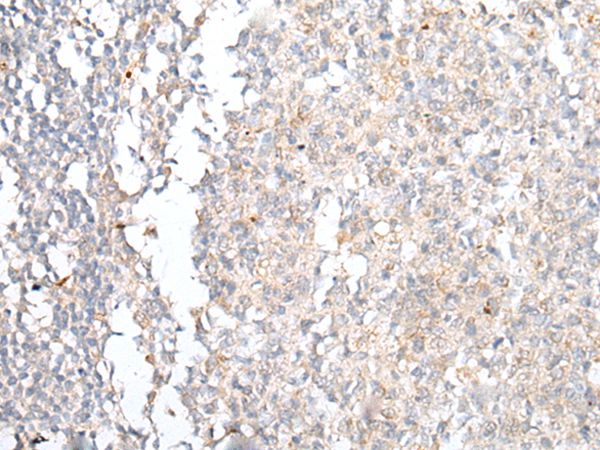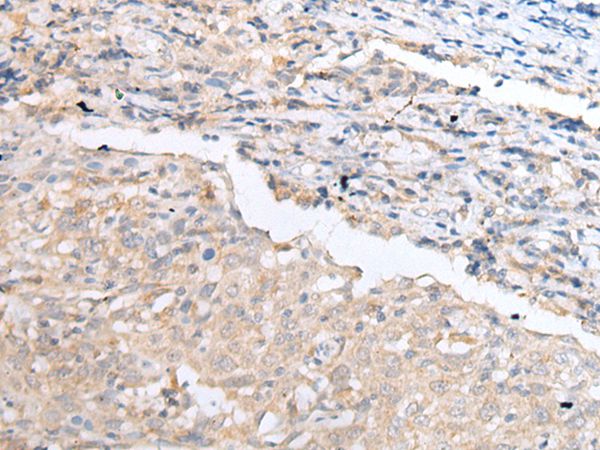Product Detail
Product NameCCR4 Antibody
Host SpeciesRabbit
ClonalityPolyclonal
PurificationAntigen affinity purification
ApplicationsIHC
Species ReactivityHu
SpecificityThe antibody detects endogenous levels of total CCR4 protein.
Immunogen Typepeptide
Immunogen DescSynthetic peptide of human CCR4
Target NameCCR4
ConjugateUnconjugated
Other NamesCKR4; K5-5; CD194; CMKBR4; ChemR13; CC-CKR-4; HGCN:14099
Accession NoSwiss-Prot#: P51679
NCBI Gene ID: 1233
Uniprot
P51679
Gene ID
1233;
Concentration0.7mg/ml
FormulationRabbit IgG in pH7.4 PBS, 0.05% NaN3, 40% Glycerol.
StorageStore at -20˚C
Application Details
Immunohistochemistry: 1: 20-100
The image on the left is immunohistochemistry of paraffin-embedded Human tonsil tissue using CCR4 Antibody at dilution 1/20, on the right is treated with synthetic peptide. (Original magnification: x200)
The image on the left is immunohistochemistry of paraffin-embedded Human cervical cancer tissue using CCR4 Antibody at dilution 1/20, on the right is treated with synthetic peptide. (Original magnification: x200)
The protein encoded by this gene belongs to the G-protein-coupled receptor family . It is a receptor for the CC chemokine - MIP-1, RANTES, TARC and MCP-1. Chemokines are a group of small polypeptide, structurally related molecules that regulate cell trafficking of various types of leukocytes. The chemokines also play fundamental roles in the development, homeostasis, and function of the immune system, and they have effects on cells of the central nervous system as well as on endothelial cells involved in angiogenesis or angiostasis.
If you have published an article using product 43918, please notify us so that we can cite your literature.
et al,SLC35A2 expression drives breast cancer progression via ERK pathway activation
, (2023),
PMID:




 The lead time is currently 1 week.
The lead time is currently 1 week.



